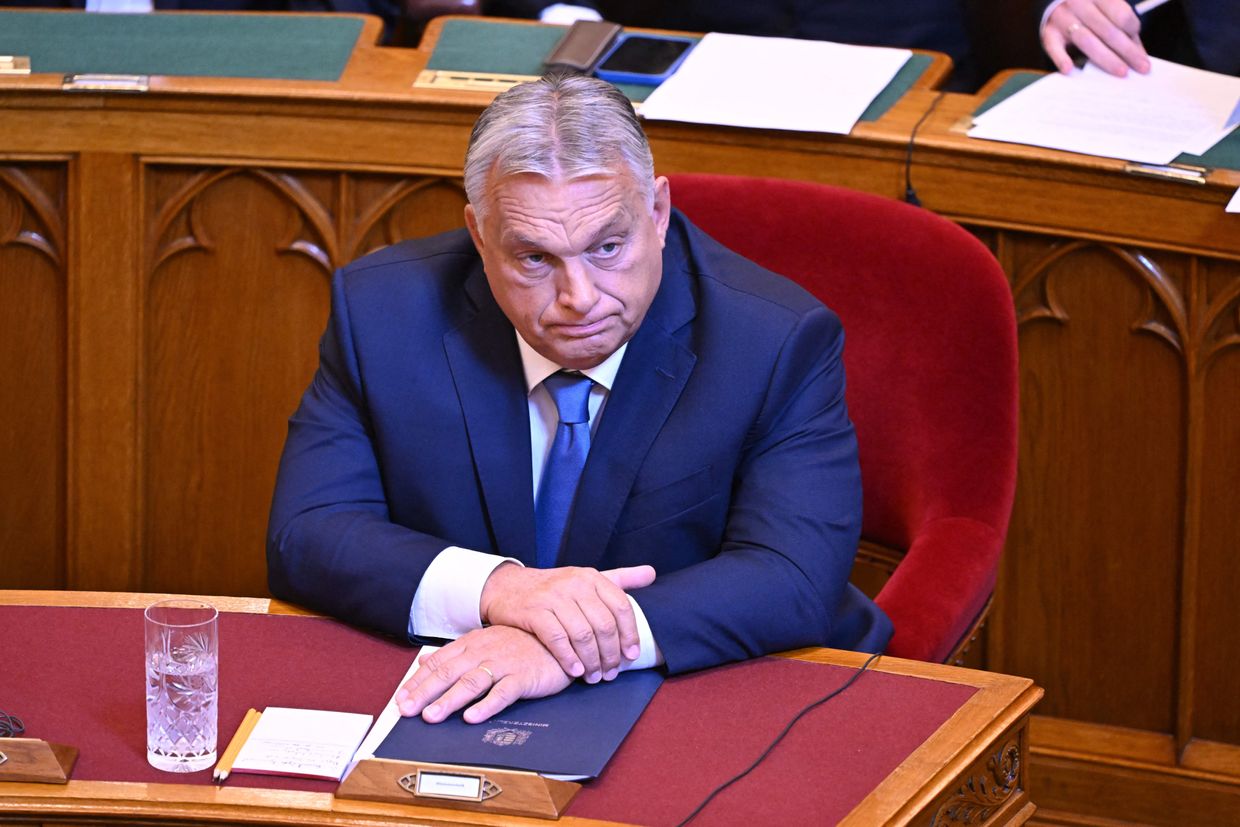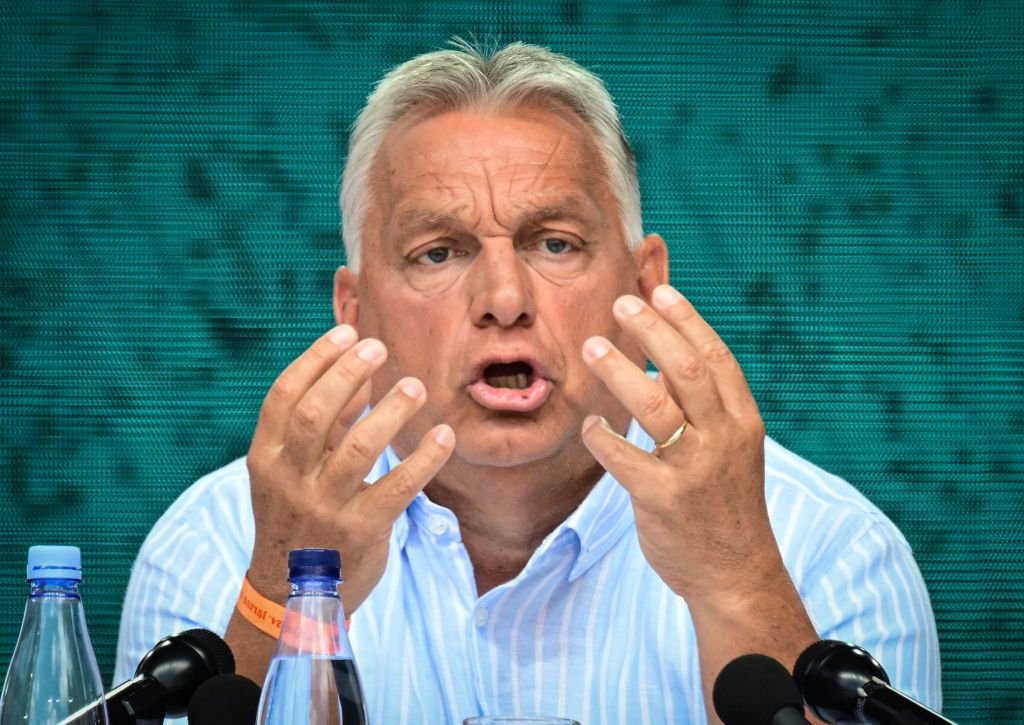Hungarian Prime Minister Viktor Orban on July 27 accused the U.S. of blowing up the Nord Stream natural gas pipelines and claimed that a third party is needed to end the war in Ukraine.
Russia blamed the U.S. and U.K. for blowing up the Nord Stream pipelines connecting Russia and Germany in September 2022. Investigations have so far failed to find conclusive evidence, and both Denmark and Sweden dropped the case in February 2024. The German investigation is still ongoing.
While some Western countries have pointed fingers at Russia, some German investigators have linked the explosions to Ukraine, accusing a crew of Ukrainians of carrying out the sabotage, but did not say whether it was officially authorized by Kyiv. Ukraine has denied any involvement.
Addressing an audience at a camp in Baile Tusnad, Romania, Orban chastised Europe for heeding Washington’s demands. He said that Europe has left behind its own interests, claiming that sanctions have damaged Europe while high energy prices harm the economy.
"The fact that we are silent about the undermining of the Nord Stream gas pipeline, that Germany itself is silent about the obvious act of terrorism carried out under American leadership against its property, and that we do not investigate, do not try to find out, and do not raise this issue legally (...) is nothing but an act of humility," Orbán said.
The nationalist Hungarian leader took direct shots at Poland for its close relationship with the U.S.
He said that Warsaw has rejected the Visegrad Group, a block of four Central European countries including Slovakia and Czechia, to join a new political axis that is more aggressive towards Russia.
“The new center of power and axis now looks like London, Warsaw, Kyiv, as well as the Baltic and Scandinavian countries," he said. “(The Poles) read morals to us, criticize us for our economic relations with the Russians, and they themselves shamelessly conduct business with them and buy oil through intermediaries, refueling the Polish economy."
Since taking the presidency of the European Commission, Orban has amped up attempts to stand as a negotiator between Moscow and Kyiv. In July, he embarked on a “peace tour” and met with Russian dictator Vladimir Putin, Chinese leader Xi Jinping, and Republican presidential nominee Donald Trump.
Orban has publicly spoken in favor of Trump and claimed the presidential candidate will stop funding Ukraine and hold peace talks if elected.
During his speech, Orban claimed peace can “only be brought from the outside.” He said that both Ukraine and Russia believe they can win and are unwilling to negotiate.
Orban’s visits sparked criticism from the EU and President Volodymyr Zelensky. The latter said that NATO and the EU can resolve the war without Orban.
Budapest is often seen as Russia’s key ally in the EU. Orban has repeatedly blocked aid to Ukraine, pushed for negotiations, and frequently spouted Kremlin talking points.














